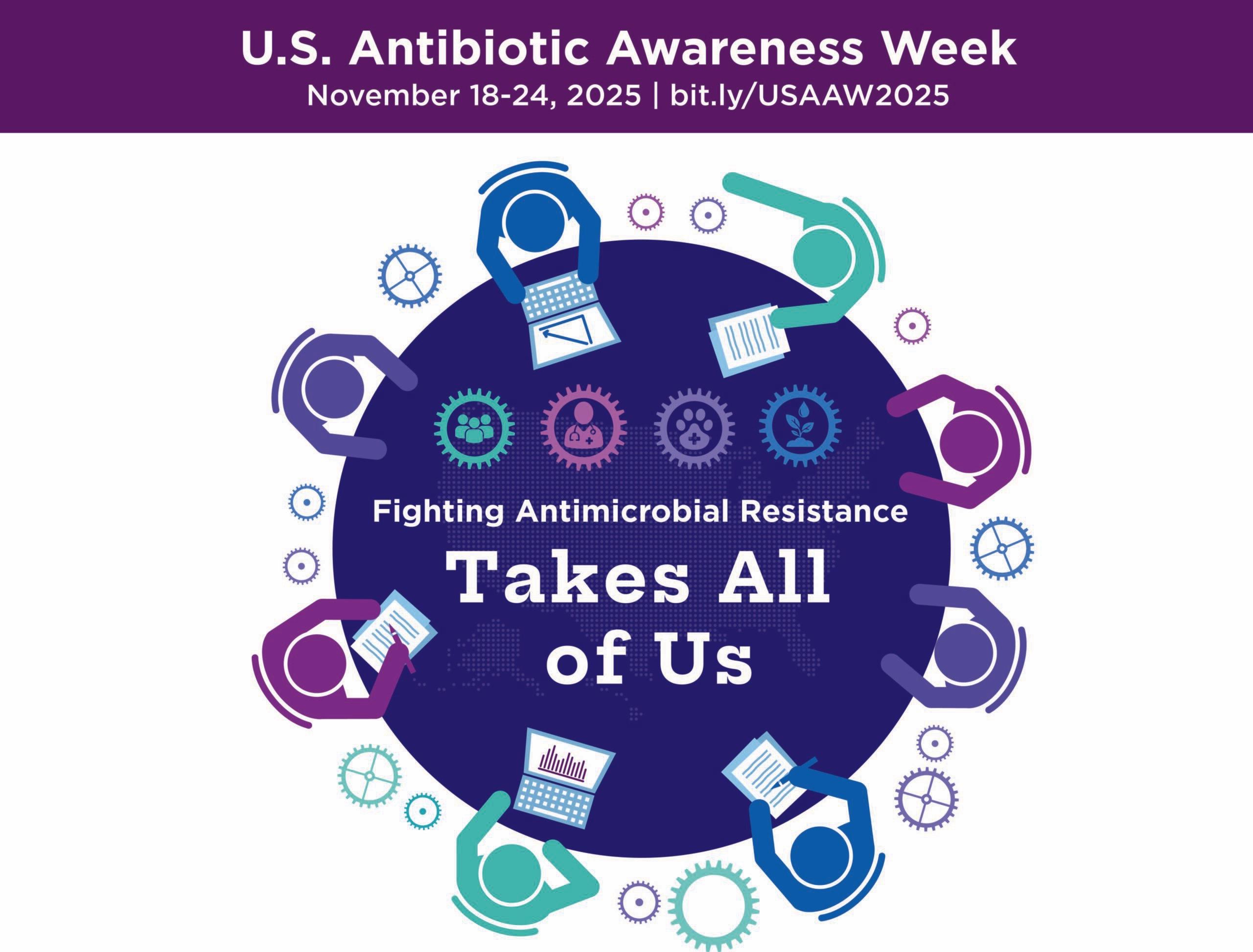Get involved at Ohio State
Visit an IDI AMR Exhibit Booth!
Stop by one of our antimicrobial resistance (AMR) informational exhibit booths to discover resources, learn practical steps to protect health, and see how Ohio State is leading the fight against AMR. Plus, pick up a free giveaway while supplies last!
Thursday, November 20
- College of Public Health (Cunz Hall lobby): ~1:00 p.m. – 5:00 p.m.
- Biomedical Research Tower Lobby: 3:00 p.m. – 5:00 p.m.
- Veterinary Medical Center (1133): ~10:00 a.m. – 4:00 p.m.
Friday, November 21
- Veterinary Medical Center (1133): ~10:00 a.m. – 4:00 p.m.
- Biological Sciences Building (Riffe Hall lobby): 11:00 a.m. – 1:00 p.m.
- Ohio Union Ground floor/lobby: 2:00 p.m. – 4:00 p.m.
